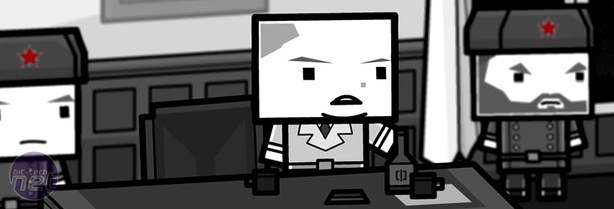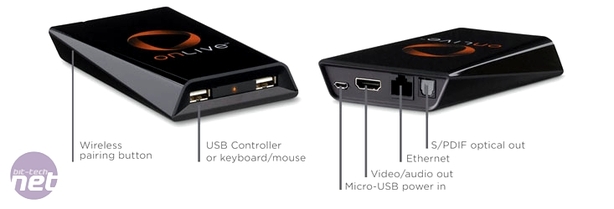Moving Forward
In the end, there are arguments either way and though we can point to the current trend in consolification in games we can also take note of how all this has happened before (and will likely happen for the next generation too) with no real long-term effect on the PC as a games platform. We can’t say for sure whether PC gaming is dead or not though - we're not seers.What we can say though with absolute certainty though is that the PC is changing in a number of fundamental ways.
Indie developers are one of the obvious metrics for this change and, though bedroom coders and game tinkerers were definitely important before, the role they as a group play in the future of the PC platform is gaining momentum. This doesn’t just come from the off-the-wall ideas and gameplay mechanics put together by small teams like Nuclear Monkey Software who go on to join big companies either, though they are important.
It also comes from the fiercely independent single programmers such as Jason Rohrer and Edmund McMillen – the ones on the fringes who make the PC such an exciting place to be and who ensure that there’ll still be important things going on with the PC even if the entire world suddenly decided to stop making commercial titles for it. You have played Façade, right?
Likewise, there are the smaller companies – old friends such as Frictional Games and Introversion, who are devoted to the platform and are still able to harness the power of a true community to create a profit where larger publishers can’t because of their larger budgets and mostly ambivalent audience. Through the growth of digital distribution and the confidence and quiet success of smaller publishers like Paradox Interactive these teams can continue to thrive on the PC platform, putting out some really interesting games that innovate in their own ways. You know about Façade, but what about Achron?
Looking to the future though, it’d be wrong to staple all our hopes on these indie devs who work out of love and the smaller developers who could, in some cases, be knocked out of the industry by one poorly-timed game that can’t recoup its budget.
Thankfully, there are plenty of bigger companies who are still sticking to the PC platform; who’ve formulated some long-term plans for expanding it and secured their games against those threats that loom over the industry as a whole – the second hand market and, yes, piracy, which exists on consoles too. Developers such as Blizzard and Valve are the obvious figureheads, but there’s Stardock and Paradox too. Even Electronic Arts is experimenting with these ideas as it tries to find a way to make PC exclusives work for big companies again, which is why the always-online feature of C&C 4 may not be a totally bad thing.
Remember though, as they say in Battlestar Galactica, all of this has happened before and all of this will happen again. Much of the scaremongering about the death of PC gaming is rooted in nothing more than the cycles of console shelf-life. On the other hand though, there are a bunch of new technologies on the horizon which could change the way that the games industry as a whole functions – things like OnLive, for example, or if people embrace peripherals maybe derivatives of Nvidia’s 3D Vision technology or the Novant Falcon will give PC gaming an edge? We’re hesitant to comment on these new ideas without taking a good, extended look at them, but we do know that these ideas exist on the cutting edge of consumer technology – just like we know that the PC has been on that same edge for a lot longer. And nothing’s managed to knock it off yet.
Got an opinion? Let us know in the forums.

MSI MPG Velox 100R Chassis Review
October 14 2021 | 15:04












Want to comment? Please log in.